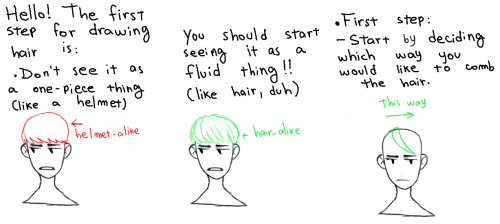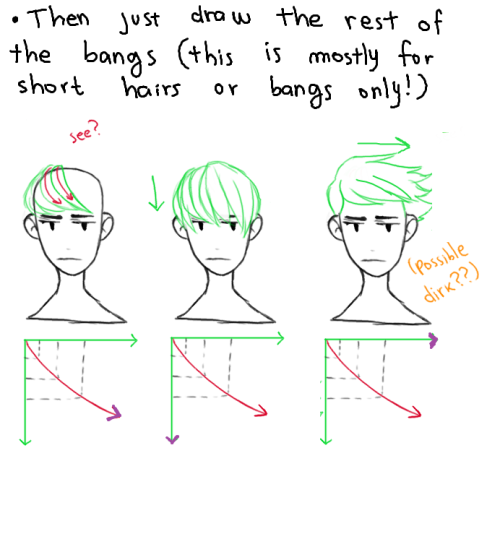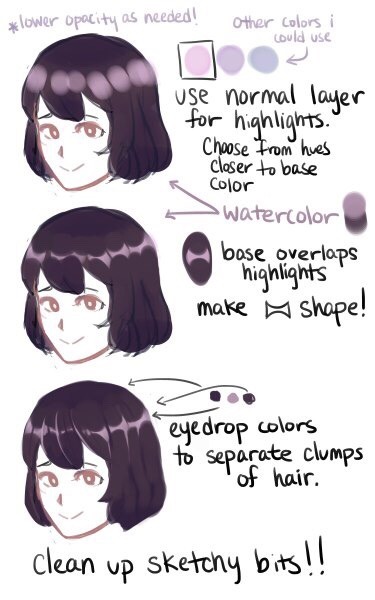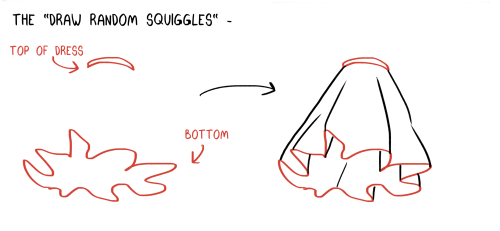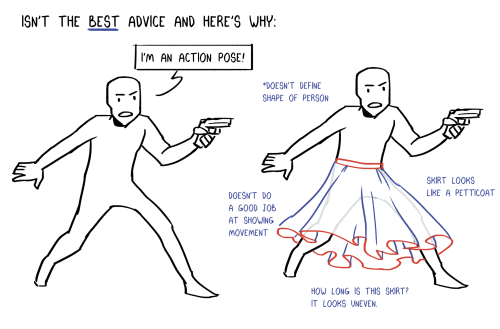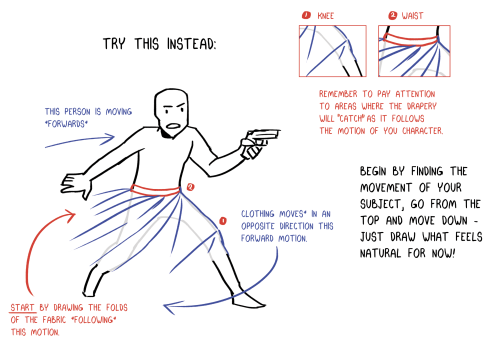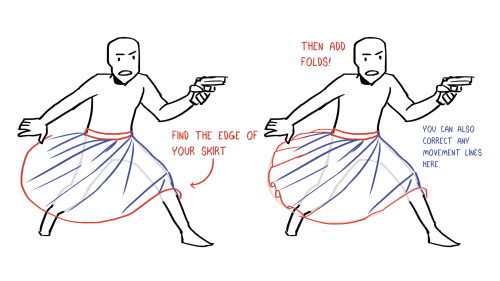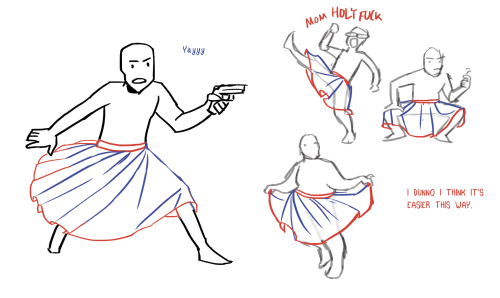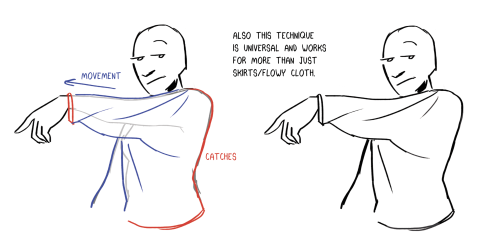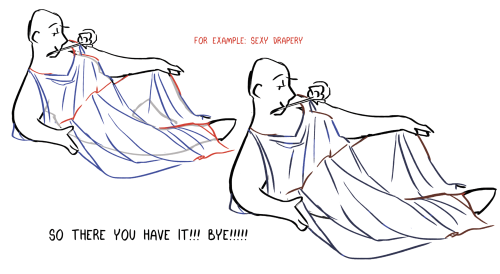Artist Resource: Bodies In Motion



Artist Resource: Bodies in Motion
I came across this site that (if you subscribe) offers high-res frame by frame photos of people jumping, flipping, kicking, dancing, etc, so you can easily analyze each position the body goes through to complete each movement. I think this can be an excellent resource for gesture drawing and reference for all manner of artmaking. It is $49 a year for the basic plan, and that gets you access to the high-res photos and a few other features.
https://www.bodiesinmotion.photo/
More Posts from Arttuti and Others
Webcomic tips
In the conclusion for now, some things I’d really recommend doing if you’re seriously considering making a webcomic (or really a comic in general). Some of these don’t really apply to strips or gag-a-day type of comics, but I’m not talking about those here.
1. Write down ideas\sketch stuff, LEGIBLY. “I’m gonna remember it later” NEVER works. And if you scribble it somewhere on a piece of paper, you’d better scan it or retype in one doc later, because tiny notes always get lost among other doodles in my skethbooks.

(i know it’s hard to keep everything clean and organized, but this mess is just not productive)
If your project is a collaboration, save your conversations. If you’re working alone, make a blog for your ramblings. You have no clue what tears of relief I cry when I open that blog and rememeber I don’t have to painstakingly look through my heaps of sketchbooks and folders for a tiny idea I’m not even sure I wrote down a few months ago.
2. Inspiration folders, or even better, inspo blog with tags also help with collecting and remembering ideas. Color schemes, landscapes, style inspirations, atmospheric stuff, maybe some photo references, all those neat things.

3. Basic tier: character design sheets. Top tier: common poses, expressions. God tier: outfits they wear throughout the comic. Holy cow tier: turnaround sheets for all those outfits.

(I’d die trying to find good pages for references without these)
4. If you haven’t finished detailing the plot, don’t even think about moving on to drawing the comic. You’re gonna regret it when you come up with a really cool plot element that can’t be incorporated anymore because you’ve already drawn all the parts you could’ve tweaked.
5. Don’t just define the plot, make a script. Writing down the lines and the brief description of the actions serves me fine:

(notice that I approximately divided the pages & the text that’d go to each panel on a page)
6. Hard mode: make thumbnails for all the pages, if possible. At least whenever a new chapter starts.
7. If your story involves some convoluted chronology shenanigans, you’d better write down the events of your timeline in the chronological order.
8. Backgrounds. You can’t avoid them, bro. Like half of the comics are backgrounds, especially if your story involves a lot of adventuring and looking around. I know it hurts, but you’ll have to become friends with them. Read some tutorials, practice on photos, go out and sketch some streets, use 3d programs (like Google Sketch) to understand the perspective, use sites like houseplans to visualize your buildings better, I don’t know. Just be prepared for their imminent evil.
9. If you’re drawing digitally, pick a brush size for the lines and stick with it. You don’t want your lines and detail levels to look all wonky and inconsistent in different panels. And I don’t mean the cool stylistic varying lines, I mean this:

Also, things on the background should have thinner and/or lighter lines to avoid distraction. Usually less details too, unless you’re making a busy background with a simple foreground to help it pop out. Or wanna draw the attention to an object on the bg.

10. Readable fonts. Even if you chose to ignore people with poor sight or dyslexia, the majority of your readers aren’t gonna be excited about struggling to decypher this:

Also, as much as I love my black speech bubbles, colorful text on black still kinda hurts the eyes. I wouldn’t recommend doing that for all the characters. Black speech bubbles are usually used for creepy, inhuman voices. And yes, having a colorful outline in this case helps.
11. Probably newsflash, but did you know that panels have their place, order and functions? They do! My favourite thing ever is how I used panels when I was like 12:

(comics ain’t rocket science, but this one is)
The composition of the panels and word balloons always serve for a better reading experience. They guide your eyes over the page, so that you never feel lost or confused. The images in the comic equal frames in a movie, so it’s pretty damn important in what order you look at things and how quickly you can understand what’s going on!

(Eric Shanower & Scottie Young’s Wizard of Oz)
12. One update a week is fine for testing waters. Don’t overestimate yourself, especially if you have a pretty busy life outside it. A stable comic that updates slowly, but regularly is better than an unpredictable erratic one. You can always pick up the pace later, if you feel confident enough.
13. Try to always have a buffer - a couple of pages in reserve. If you’re making the pages much faster than you’re updating, this shouldn’t be a problem. But if those paces are equally the same, it’s goddamn HARD. But on the other hand, if something happens and you skip an update, those come in handy.
If you’re looking at this list and thinking “wow that’s a LOT of work”, you’re totally right. And it’s okay to be intimidated at first! But that’s why it’s important to start with something small. Once you get the formula down, these things will be natural to you.





Step-by-step by Joana Neves
Due to popular demand, I am sharing a step-by-step on how I render faces (though in this case I rendered a whole bust, with a focus on the face). I don’t believe this qualifies as a tutorial, but hopefully it will allow you to roughly understand how I draw and render things, and maybe help you a little bit. Remember that everyone has a different way to work, and what works for me may not work for you and that’s exactly why I wouldn’t call this a tutorial.
I am thinking of doing a similar one for faces with makeup, but I can’t tell exactly when. Anyway, if anyone is interested in that, I will be glad to know! Share your thoughts with me.
I hope you like this and as usual, thank you for the support!


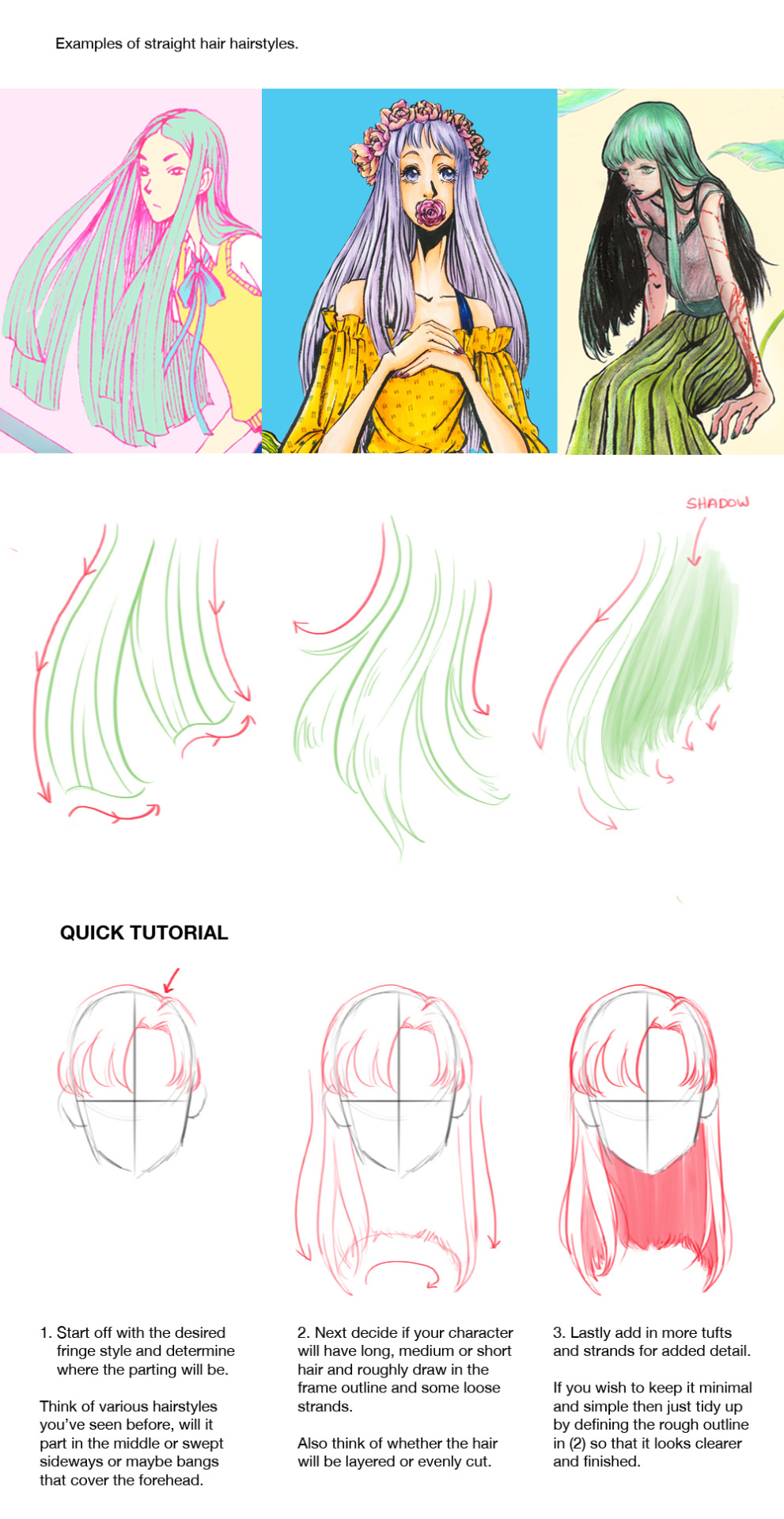




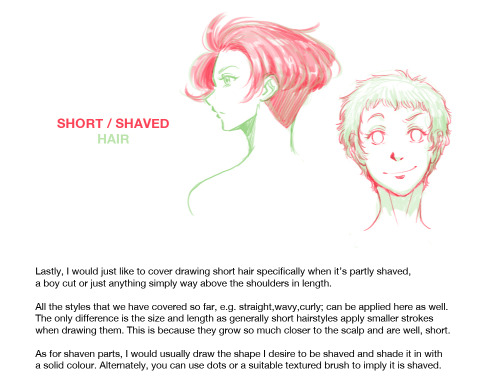


How to Draw : Hairstyles Pt. 2
Finally sat down and completed part 2 of the hair tutorial. Here I discuss how to draw hairstyles for female characters, although I think it can be applied for male characters as well. I mean..hair is hair xD I didn’t cover how to draw hairstyles that are tied or braided or styled in a special way as I thought the post would be way too long. So I’ll be saving that for another day. If you have any questions just drop me a message or leave a reply and I’ll do my best to get back to you. Hope everyone has fun learning to draw hair as much as I did putting this together :D And I just want to say a big thank you to all of those who checked out part 1. I’ll leave a link in case anyone needs it How to Draw : Hairstyles Pt. 1
-
 deluxeyellowflower liked this · 4 months ago
deluxeyellowflower liked this · 4 months ago -
 glitchven liked this · 7 months ago
glitchven liked this · 7 months ago -
 magisource liked this · 1 year ago
magisource liked this · 1 year ago -
 bulbasad reblogged this · 1 year ago
bulbasad reblogged this · 1 year ago -
 sparrow-exists reblogged this · 1 year ago
sparrow-exists reblogged this · 1 year ago -
 hualojedola liked this · 1 year ago
hualojedola liked this · 1 year ago -
 the-mob-boss-is-here liked this · 1 year ago
the-mob-boss-is-here liked this · 1 year ago -
 crowdoesart21 reblogged this · 1 year ago
crowdoesart21 reblogged this · 1 year ago -
 martialwriter liked this · 1 year ago
martialwriter liked this · 1 year ago -
 microwabehour reblogged this · 1 year ago
microwabehour reblogged this · 1 year ago -
 microwabehour liked this · 1 year ago
microwabehour liked this · 1 year ago -
 hornyforthevirginmary reblogged this · 1 year ago
hornyforthevirginmary reblogged this · 1 year ago -
 hornyforthevirginmary liked this · 1 year ago
hornyforthevirginmary liked this · 1 year ago -
 mastodoncat liked this · 1 year ago
mastodoncat liked this · 1 year ago -
 mydignityisinflames liked this · 1 year ago
mydignityisinflames liked this · 1 year ago -
 joshuadunshua liked this · 1 year ago
joshuadunshua liked this · 1 year ago -
 vanillachainsaw reblogged this · 1 year ago
vanillachainsaw reblogged this · 1 year ago -
 vanillachainsaw liked this · 1 year ago
vanillachainsaw liked this · 1 year ago -
 thehomoofalltime reblogged this · 1 year ago
thehomoofalltime reblogged this · 1 year ago -
 byrdsfuturereference reblogged this · 1 year ago
byrdsfuturereference reblogged this · 1 year ago -
 byrdsfly reblogged this · 1 year ago
byrdsfly reblogged this · 1 year ago -
 byrdsfly liked this · 1 year ago
byrdsfly liked this · 1 year ago -
 auttoton reblogged this · 1 year ago
auttoton reblogged this · 1 year ago -
 auttoton liked this · 1 year ago
auttoton liked this · 1 year ago -
 earlgraytay liked this · 2 years ago
earlgraytay liked this · 2 years ago -
 weirdweirm reblogged this · 2 years ago
weirdweirm reblogged this · 2 years ago -
 the-archer-goddess liked this · 3 years ago
the-archer-goddess liked this · 3 years ago -
 saving-the-drafts-king reblogged this · 3 years ago
saving-the-drafts-king reblogged this · 3 years ago -
 lord--dorian liked this · 3 years ago
lord--dorian liked this · 3 years ago -
 alexwilebi liked this · 3 years ago
alexwilebi liked this · 3 years ago -
 aleranchampion liked this · 3 years ago
aleranchampion liked this · 3 years ago -
 laooneart liked this · 3 years ago
laooneart liked this · 3 years ago

